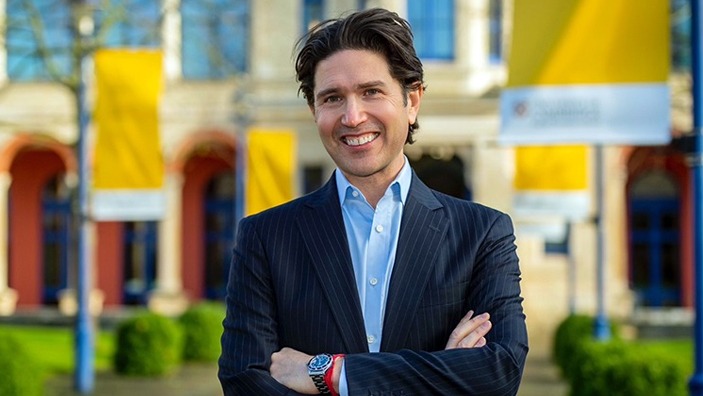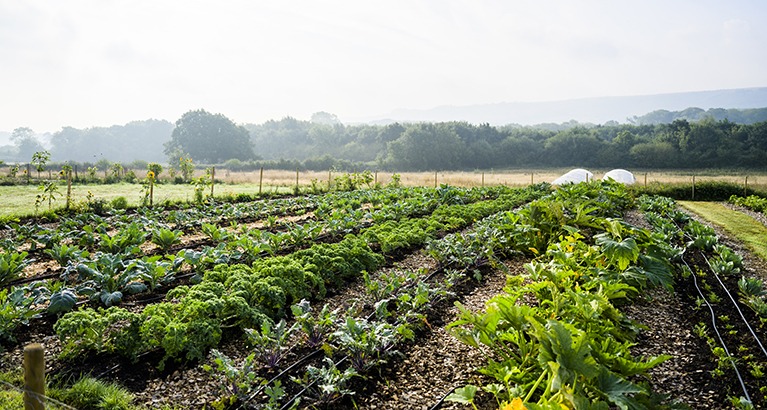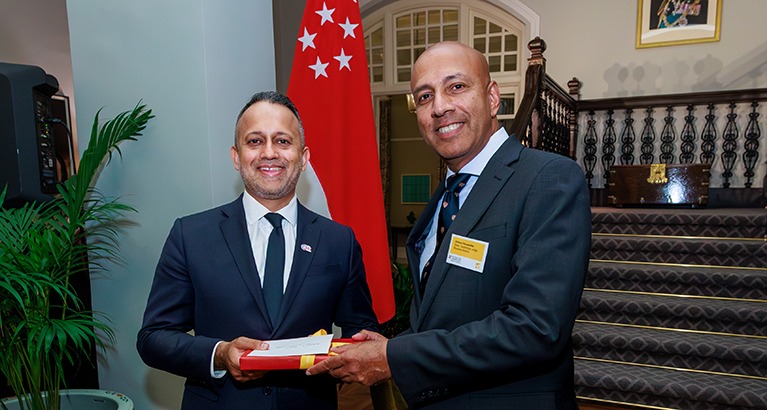
Take sustainability seriously
The call for businesses to take sustainability seriously has never been clearer. Lindsay Hooper, CEO of the Cambridge Institute for Sustainability Leadership explained that the challenge today is to go beyond incremental improvements, and embrace systems transformation. She also introduced the idea of competitive sustainability, whereby climate and resource pressures are repositioned as drivers of innovation and long-term value. To stay relevant in today’s challenging environment, she argued that companies need to adapt to systemic risks such as climate disruption and shifting societal expectations, whilst simultaneously engaging policymakers and peers to reshape the markets they depend on.
Andrew Winston, co-author of Net Positive, explained that leading companies must actively give back more than they take. This results in creating net positive value for society and the environment, while still allowing a company to thrive financially. That shift demands moving beyond the outdated belief that a business’s sole purpose is profit, and instead viewing sustainability as core strategy. For Andrew, real progress also depends on bold policy advocacy – from carbon pricing to fair wages – to create the optimum conditions for lasting impact.
Put impact at the centre of your business model … deliver profit and impact together and you will create the greatest value for your venture.
Investor and impact pioneer Sir Ronald Cohen describes how capitalism itself is being redefined around 3 dimensions: risk, return and impact. Using tools such as impact-weighted accounts and transparent reporting enable capital to flow toward companies that restore rather than deplete the world’s resources. Similarly, Kate Williams, CEO of 1% for the Planet, explained how even small commitments, such as donating a portion of sales to environmental causes, can help spark much wider cultural and strategic shift. When giving becomes embedded in business practice, it becomes a catalyst for regeneration.
Be bold with your regenerative efforts
Courage and authenticity lie at the heart of companies that have chosen a regenerative path. Vincent Stanley, Director of Philosophy at Patagonia reminded listeners that regeneration must be meaningful, and not just a marketing term. Patagonia applies the concept where it counts, such as in its food division, while also measuring responsibility product by product across its clothing lines. Its ‘Don’t Buy This Jacket’ campaign, repair programmes, and commitment to co-founding the Regenerative Organic Certification, show how bold action can challenge consumer habits and inspire collective change.
For Dr Bernice Pan, founder of fashion brand DEPLOY, regeneration begins with design. Her systems-based approach rethinks the fashion industry from the ground up, addressing waste and inequality by creating clothing that can adapt and endure. By embedding circular principles into every stage of production, DEPLOY proves that sustainability isn’t just about using better materials, it’s about re-engineering the system itself to ensure lasting impact.
Rethink agriculture and food systems
Elizabeth Whitlow, founding Executive Director of the Regenerative Organic Alliance, is a firm believer that regeneration starts with the soil. In her conversation with Chris, she explained how the Regenerative Organic Certification weaves together 3 key areas: soil health, animal welfare and social fairness into one holistic framework. She illustrated the challenges of maintaining integrity in the face of commercial pressures, and urged listeners to see regeneration as a movement grounded in trust, relationships, tradition and storytelling rather than seeing it as merely a label.
Illycaffè puts this theory into practice. Chairman Andrea Illy describes how the company’s regenerative agriculture initiatives improve soil health, farmer livelihoods and biodiversity, whilst also elevating coffee quality. In Brazil, illycaffè’s use of agroforestry and reduced agrochemicals has restored local ecosystems and produced award-winning beans. For Illy, regeneration is both an ecological and economic imperative: proving that environmental renewal and excellence can go hand in hand.
Take note from indigenous communities
Regeneration is not a new concept, it is rooted in ancient wisdom. Heidi Renata, Māori entrepreneur and co-founder of Innovate HQ, and Lisa Ferguson of The Nature Conservancy, shared how indigenous principles of stewardship and reciprocity can guide modern business. They described leadership as moving at the ‘speed of trust’, valuing relationships over short-term results, and bringing others along with you rather than controlling from above.
Ana Costa, from Natura & Co, the Brazilian beauty group whose origins in the Amazon have shaped its entire business model, strongly echoed this sentiment. Natura supports more than 10,000 small-scale producers across forest communities, blending traditional knowledge with scientific innovation. Its commitment to biodiversity, inclusion and ecosystem restoration shows how local wisdom and global influence can align, making Natura a true pioneer of successfully scaling regenerative business practices.
Lead change from the top
Nigel Topping, former UN Climate Champion for COP26, underlined that radical collaboration and systems leadership can accelerate the pace of change. Drawing on his experience coordinating global coalitions, he described how ‘ambition loops’ between business and government can advance progress. From aligning business and policy to create positive ambition loops, to holding firms accountable for science-based targets and Scope 3 emissions, he makes a compelling case for urgent, coordinated action.
Regeneration is contagious – once people see that restoring ecosystems and communities can also renew business itself, they are hooked.
In reflecting across all of the conversations, series host Chris Marquis reflected that “it’s been a real honour to host this series and speak with so many inspiring leaders focused on not just being sustainable, but creating a net positive impact on the world. From finance to fashion, our guests showed that business can be a powerful agent of regenerating natural and social systems. One key theme is that being regenerative is not a solo pursuit – it’s built on trust between business and community, investors and innovators, and humans and nature. In particular, the shift from extraction to regeneration demands not just new tools but new mindsets of accountability and care. The most hopeful thing I took from the episodes is that regeneration is contagious – once people see that restoring ecosystems and communities can also renew business itself, they are hooked!”







